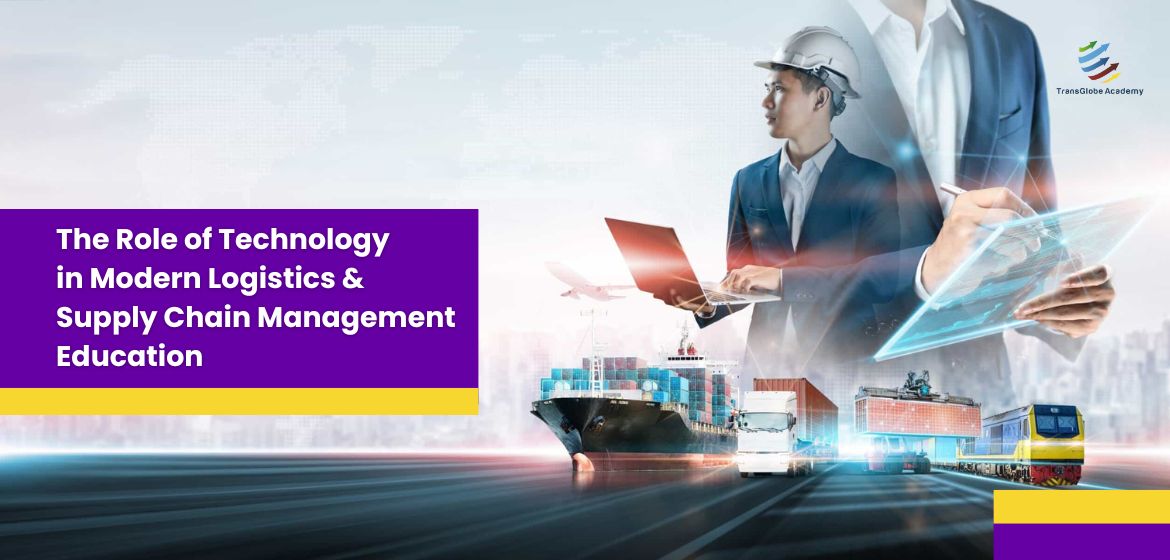Technology has revolutionized the field of logistics and supply chain management, playing a crucial role in reshaping the way businesses operate and manage their processes. In today’s digital era, professionals in this industry need to stay updated on the latest technological advancements and their impact on supply chain operations. With the integration of technology in logistics and supply chain management courses, individuals can better understand how innovative tools and platforms are transforming the industry. The integration of technology in logistics and supply chain management education has opened up new opportunities for learning and growth. Students and professionals now have access to a wide range of online courses, webinars, and virtual simulations that offer practical insights into the application of technology in real-world scenarios. From learning about advanced inventory tracking systems to understanding the role of artificial intelligence in demand forecasting, technology-focused educational programs empower individuals to develop the skills and knowledge needed to thrive in a rapidly evolving industry.
Embracing Technological Advancements
One of the key impacts of technology on logistics and supply chain management education is the increasing prevalence of digital platforms. With the shift towards remote work and social distancing measures, companies have actively transitioned to digital platforms for communication with suppliers, manufacturers, and customers. These platforms enable real-time information sharing, reduce manual processes, and improve collaboration between stakeholders.
Furthermore, the application of predictive analytics has become increasingly important. The volatile nature of the industry, coupled with the impact of global events such as the COVID-19 pandemic, has made demand forecasting challenging. By utilizing historical data and machine learning algorithms, predictive analytics can help identify patterns and predict future demand, enabling businesses to optimize inventory levels and avoid shortages. Robotics and automation have also gained prominence in warehouse and manufacturing facilities. With social distancing measures in place, maintaining a safe workforce has become challenging. Robotics and automation technology can help reduce the reliance on human labour while increasing operational efficiency, particularly in processes such as picking and sorting.
Last but not least, the utilization of artificial intelligence (AI) has seen a significant rise. AI can assist businesses in identifying inefficiencies and development opportunities within the supply chain. Moreover, it can optimize transportation routes, reduce costs, and enhance delivery times, ultimately making the supply chain more efficient and responsive to changing demands.
Transformative Impact
One of the key areas where technology is making a significant impact is in enhancing supply chain visibility. Through the use of advanced tracking and monitoring systems, businesses can gain real-time insights into the movement of goods across the supply chain. This level of visibility not only enables better decision-making but also helps in identifying potential bottlenecks and inefficiencies that can be addressed proactively. By incorporating lessons on supply chain visibility technology into educational curriculums, students can grasp the importance of data-driven insights in optimizing supply chain performance.
Similarly, the adoption of technologies such as blockchain and machine learning is transforming the way supply chain data is managed and analyzed. These technologies have the potential to streamline processes, enhance security, and facilitate seamless collaboration across supply chain networks. By immersing students in the concepts and applications of these technologies, educational programs are equipping them with the expertise to leverage these tools for driving operational efficiency and transparency in supply chain management.
As technology continues to advance, it will undoubtedly play a crucial role in shaping the future of logistics and supply chain management education. Educational institutions must continue to adapt their curricula and teaching methodologies to equip students with the technological literacy and skills needed to succeed in this rapidly evolving industry. By staying at the forefront of technological advancements, educational programs can ensure that future professionals are well-prepared to tackle the challenges and opportunities presented by modern logistics and supply chain management.
In conclusion, the role of technology in modern logistics and supply chain management education is indispensable. By embracing technology-focused learning initiatives, individuals can stay ahead of the curve and contribute to the advancement of the industry. As the landscape of logistics and supply chain management continues to evolve, equipping students and professionals with a strong foundation in technology-driven practices is vital for building a sustainable and agile workforce.
Logistics courses in Kerala offer an excellent opportunity for individuals interested in pursuing a career in the field of logistics and supply chain management. Kerala’s strategic location as a major trade gateway presents a unique environment for students to gain practical insights into global logistics operations and trade dynamics. TransGlobe Academy is the answer for those seeking the best logistics training institute in Kerala. More than theoretical knowledge we emphasize hands-on experience and industry-relevant training. TransGlobe has a proven track record of producing skilled professionals who are capable of addressing the complexities of modern logistics and supply chain management.

